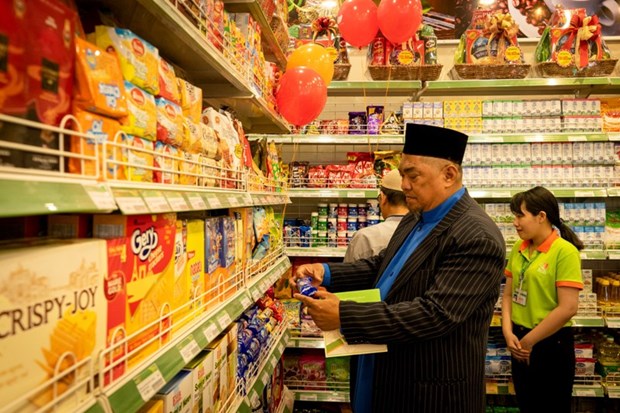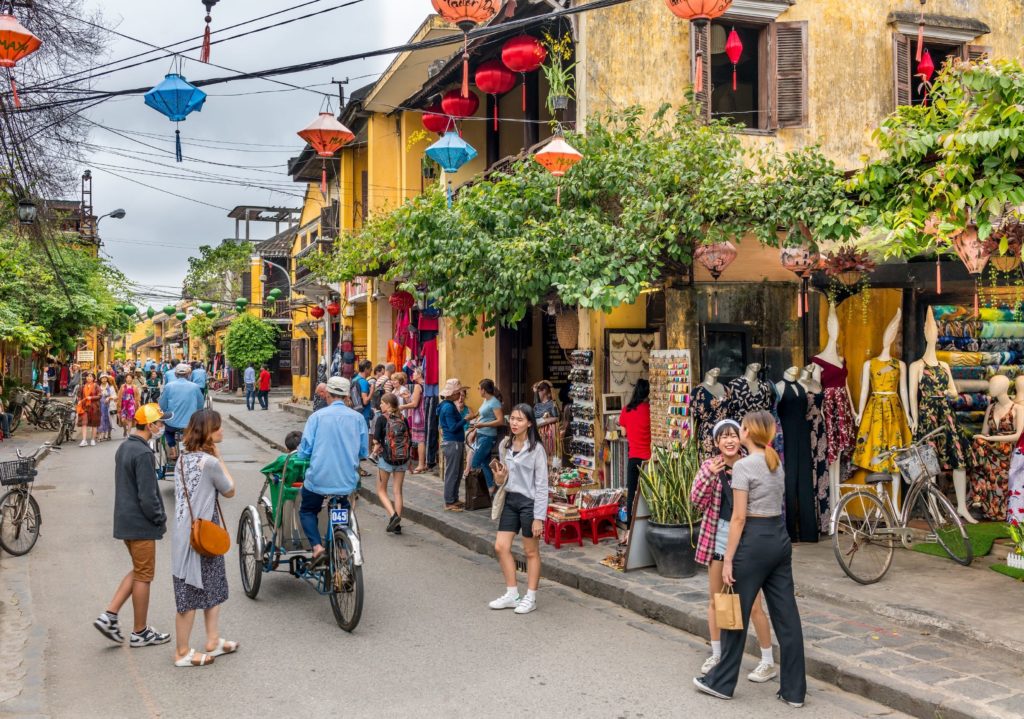
 "
"

 "
"

HÀ NỘI — The Halal market is a huge market for Vietnamese businesses because currently Vietnamese Halal products do not account for a significant share.
The statement was made by Nguyn Quc Dng, Deputy Minister of Foreign Affairs, at a conference titled “Halal Market in Southeast Asia-South Asia-South Pacific: Potentials and Opportunities,” which was co-hosted by the Ministry of Foreign Affairs and the Ministry of Agriculture and Rural Development on Monday.
According to Dng, the Southeast Asia-South Asia-South Pacific region has 860 million Muslims and Halal consumers, accounting for 66% of the global Muslim population.
In the pillars of food, tourism, textiles, pharmaceuticals, and media, Vietnam has many strengths and favorable conditions to effectively participate in the global Halal economy.
With 17 FTAs, including new generation FTAs like the CPTPP, EVFTA, and RCEP, Vietnam has played an important role in many regional and inter-regional economic linkages. Dry goods, such as rice, pepper, cashew nuts, and coffee beans, are also strong in Vietnam.
The global Halal food market is expected to grow rapidly in the coming years. Halal food spending is expected to rise by 3.1% from $1.4 trillion in 2020 to $1.9 trillion in 2024 and $15 trillion in 2050.
The high demand for Halal products is due to new consumption trends as well as an increase in Muslims. Many non-Muslims are increasing their spending and use of Halal food because Halal products meet environmental and food safety criteria.
Besides that, “the demand for Halal products is also increasing in the domestic market as foreign Muslims come to Viet Nam to travel, work and study more and more. The Muslim community in Vietnam is also increasing,” said Dũng.
In addition, Halal products are expected to grow in popularity in the food, pharmaceutical, and cosmetics industries. These products would have a growing impact on the tourism, financial, and marketing service industries’ development.

Because Halal food is not only a product but also a process that includes raising, slaughtering, preserving, packing, transporting, and distributing to consumers, the Halal food industry encompasses many other fields such as raw materials, fertilisers, processing, and logistics.
According to Phùng c Tin, Deputy Minister of Agriculture and Rural Development, 50% of Viet Nam’s agricultural products, such as rice, vegetables, tea, coffee, cashew, and pepper, meet Halal market standards.
Domestic enterprises must understand cultural, religious beliefs, and commitments, according to Tin, to enter the Halal market.
“However, each year, only about 50 Vietnamese companies have been granted Halal certificates. Việt Nam has only had about 20 goods exported to the Halal market; a very low number compared to its potential. Up to 40 per cent of Vietnamese localities do not have Halal certified export products,” said Dũng.
Deputy Minister Tin hoped that the conference would aid in the development of solutions for improving the business environment and assisting Vietnamese agricultural products in gaining access to the Halal food market.
Aside from that, he said, sustainable development in Vietnam’s agricultural, forestry, and fishery value chains is required to supply goods for the Halal market in Southeast Asia, South Asia, the South Pacific, and around the world.